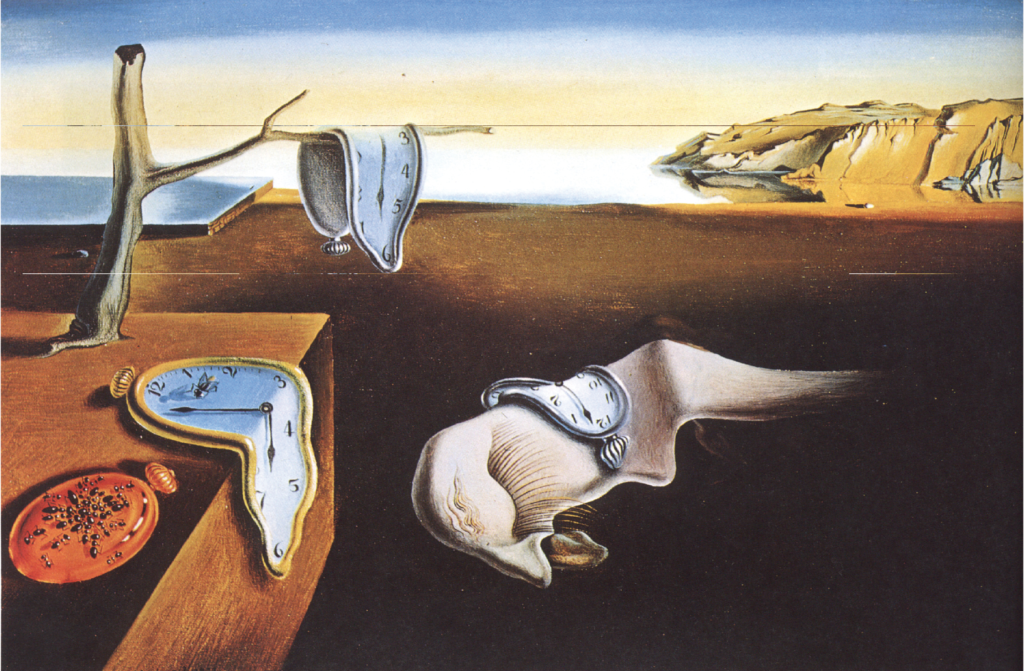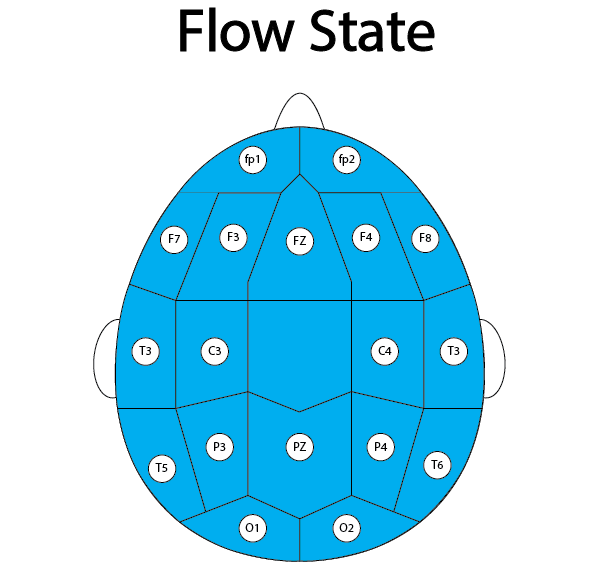The Eight Function-Attitudes In Depth
Introverted Intuition (Ni)
- Focuses on underlying meaning and where things are headed
- The Essence Seeker: Also called The Seer or The Visionary
- Ni applies especially to NJ types (ENFJ, ENTJ, INFJ, INTJ)
“The essential is invisible to the eye.” - Antoine de Saint-Exupéry
Spot Ni
NJs more often say things like:
- "I see where this is heading." It predicts outcomes early.
- “This is a house of cards.” They speak symbolically, detecting deeper patterns.
- "Aha!" Ni can get fully formed insights (“downloads”), then backfill specifics afterward.
- "I don't know how I know, but I do." They experience "pure knowings" with a high degree of accuracy.
"I don't do drugs, I am drugs." - Salvador Dali

Persistence of Memory by Salvador Dali
How to Motivate Ni
Ni is motivated when its inner vision is respected and given room to unfold.
- Ask meaning-focused questions. “What’s the big picture here?” “What’s the underlying pattern you’re seeing?” “Where do you think this is heading?”
- Give time for incubation. Offer a question or problem, then let them reflect and come back with a synthesized perspective.
- Invite them to share their hunches. “What’s your gut sense about this?” or “What do you think will happen?” signals that their intuition is valued.
- Link tasks to a larger vision. Connect day-to-day work to long-term impact, values, or purpose to keep them engaged.
- Protect depth from constant noise. Reduce unnecessary interruptions, busywork, or chaotic pivots; Ni needs sustained focus to converge.
How to Connect With NJ Types
Motivation and connection are closely linked for Ni. To build trust:
- Honor their inner world. Show genuine interest when they share symbols, dreams, or “weird” hunches. This is their language.
- Ask them to walk you through their perspective. “Can you show me how you got there?” is better than “That doesn’t make sense.”
- Validate their convergence. If their prediction or insight lands, name it: “You called this months ago—that was really helpful.”
- Allow depth in conversation. They bond over meaning: talking about purpose, values, patterns in life, or the big picture.
- Be patient with pauses. Silence often means their mind is stitching together disparate pieces into a coherent whole.
Feeling “seen” for their inner process is a major source of connection and safety for Ni users.
“You can’t connect the dots looking forward; you can only connect them looking backward.” - Steve Jobs
Don’t Do It!
Don’t dismiss or downplay their intuition
Ni-users (NJs) rely on inner convergence to understand at a deeper level. When someone mocks their insight or demands “proof” before they’ve had time to articulate it, NJs often shut down and withhold their best ideas. (See Ni Brain Strengths for more details).
Better approach:
- Invite the intuition: “What are you sensing here?”
- Then give them space to translate the insight into language or actionable steps.
Collaborate With Ni Types
(INTJ, INFJ, ENTJ, ENFJ)
Ni elevates collaboration by offering vision, pattern insight, and long-range coherence. Others may need help understanding that Ni’s inward, reflective style is not disengagement - it’s deep processing. When you give Ni space to converge, it often delivers clarity others didn’t know they needed.
Below are common pairings and how to bring out their best.
Ni Strengths
 Ni Brain Strengths
Ni Brain Strengths
Research by Dario Nardi shows that Ni-dominant types often display a distinct whole-brain pattern when working with unfamiliar problems.
Like several blind people touching different parts of an elephant, each region of the brain offers a different piece of the puzzle, then reconciles the perspectives into a single insight.
This maps to the lived experience of Ni:
Whole-picture scanning instead of narrow, analytic focus
- Synthesis of multiple perspectives into a unified concept
- Comfort with the unknown, often showing their most robust brain pattern with unfamiliar material
- Sudden realizations, where the answer appears “all at once” rather than step-by-step
“In all chaos there is a cosmos, in all disorder a secret order.” - Carl Jung
Team Strengths of Ni
Introverted Intuition (Ni) strengthens teams and organizations through six core capacities centered on pattern insight, foresight, and meaning.
- Pattern Recognition & Foresight. Ni connects dots across time, disciplines, and events, revealing deeper patterns and likely outcomes. This supports strategic planning, early risk detection, and proactive decision-making across the organization.
- Coherent Vision. Ni frames a clear, compelling picture of the future, helping teams prioritize effectively and align their efforts. This brings long-range direction to organizations and prevents drift, duplication, and reactive planning.
- Root-Cause Clarity. Ni sees beneath symptoms to the underlying structural, cultural, or psychological dynamics driving problems. This empowers teams to solve issues at their source, reducing recurring problems and improving efficiency.
- Meaning-Making. Ni can provide a deep, meaningful narrative for team efforts. which strengthens team engagement and creates shared purpose. This supports organizational resilience and motivates employees through times of change.
- Transformational Insight. Ni reframes situations, revealing solutions that become obvious only in hindsight. This helps organizations innovate, rethink assumptions, and move from incremental improvement to transformative change.
- Systems Integration. Ni naturally sees how projects, people, and initiatives interconnect across time. This helps teams avoid silos and allows organizations to coordinate strategies, resources, and communication with greater coherence.
The Ni Process
- Absorb & Observe. Ni quietly takes in data: conversations, documents, patterns in people’s behavior, the “feel” of a situation.
- Incubate. The mind goes inward. Things look still from the outside, but Ni is cross-referencing, synthesizing, and converging behind the scenes.
- Realization / Download. Insight arrives, often suddenly: a clear hunch, image, or concept that “just feels right” and explains the whole.
- Backfill With Logic & Detail. After the insight, Ni uses other functions (primarily Te or Fe) to translate the realization into plans, arguments, or step-by-step actions.
- Refine & Align. As new information emerges, Ni updates the inner model, adjusting strategy while preserving coherence.
Try Ni
You can experiment with Ni—even if it’s not your dominant function—by practicing its habits of depth and symbolic meaning:
- Forecast Your Life Course. Ask: “If I keep living exactly as I am now, where is this likely to lead in 5–10 years?” Let images and scenarios arise; write them down.
- Work With Symbols. List 3–5 symbols that deeply resonate with you (animals, objects, places). Ask: “What do these represent in my life right now?”
- Sit With a Question. Pose an important question (about work, relationships, or purpose), then spend 5–10 minutes in quiet, non-distracted awareness. Notice any images, phrases, or feelings that arise.
- Interpret a Surreal Image. Look at a symbolic piece of art (for example, Dali’s The Persistence of Memory). Ask: “What might this be saying about time, memory, or identity?” Let your own meaning, not “the correct” one, emerge.
- Explore Your Dreams. Upon waking, write down any dreams in as much detail as possible. Ask each character or symbol: “What do you need?” or “What do you represent in my life?”
- Hold Contradictions Together. Take a topic with strong opposing opinions. Write down several perspectives without judging them. Then ask, “What larger pattern could make sense of all these views?”
